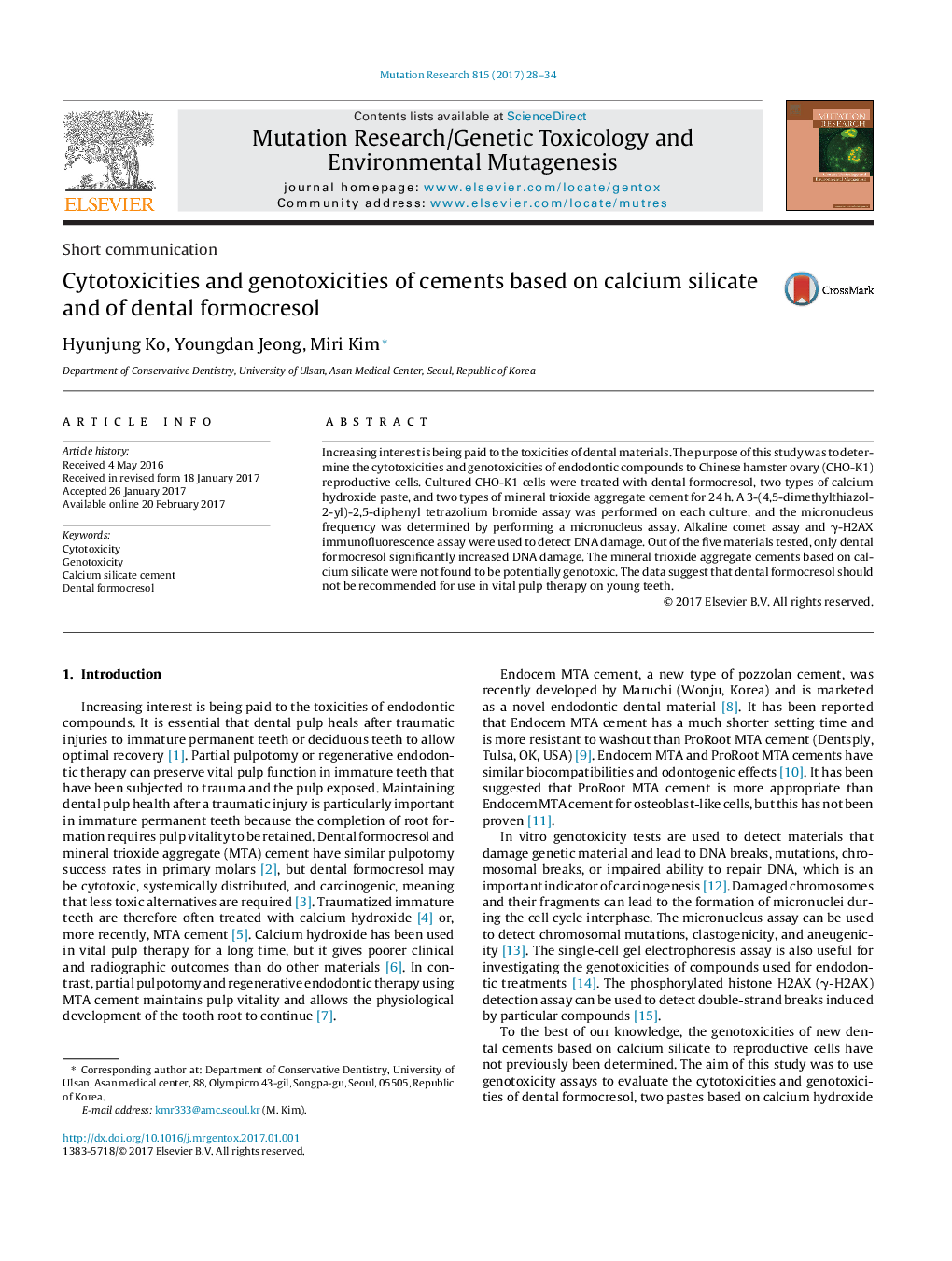| Article ID | Journal | Published Year | Pages | File Type |
|---|---|---|---|---|
| 5528753 | Mutation Research/Genetic Toxicology and Environmental Mutagenesis | 2017 | 7 Pages |
â¢Calcium silicate and dental formocresol cytotoxicities and genotoxicities were tested.â¢Dental formocresol increased the chromosome aberration frequency in CHO-K1 cells.â¢Calcium silicate cements were not genotoxic to CHO-K1 cells in vitro.
Increasing interest is being paid to the toxicities of dental materials. The purpose of this study was to determine the cytotoxicities and genotoxicities of endodontic compounds to Chinese hamster ovary (CHO-K1) reproductive cells. Cultured CHO-K1 cells were treated with dental formocresol, two types of calcium hydroxide paste, and two types of mineral trioxide aggregate cement for 24 h. A 3-(4,5-dimethylthiazol-2-yl)-2,5-diphenyl tetrazolium bromide assay was performed on each culture, and the micronucleus frequency was determined by performing a micronucleus assay. Alkaline comet assay and γ-H2AX immunofluorescence assay were used to detect DNA damage. Out of the five materials tested, only dental formocresol significantly increased DNA damage. The mineral trioxide aggregate cements based on calcium silicate were not found to be potentially genotoxic. The data suggest that dental formocresol should not be recommended for use in vital pulp therapy on young teeth.
